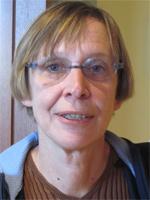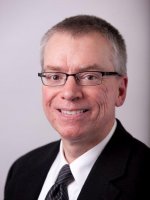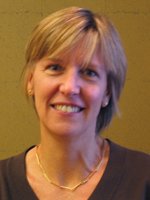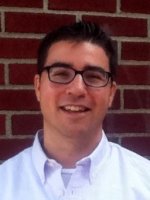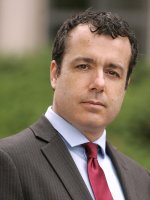Women's, Gender, and Sexuality History Faculty
Faculty
Robin E. Judd: My PhD is in European and Jewish history from the University of Michigan, where I also studied gender history and theory. My current research concerns European and North African Jewish women who married American, British, Canadian, and Australian military men after the Holocaust, exploring the intersection of communal reconstruction, family politics, and understandings of occupation and victimization. My first book, Contested Rituals: Circumcision, Kosher Butchering, and the Making of German Jewish Politics, concerned the relationship of political behavior, antisemitism, and ritual practices. As a professor of Jewish history, I am deeply interested in how gender influenced the modern Jewish experience, as well as how gender historiography and methodologies can recast extant Jewish historical narratives. I also am constantly learning about the politics of gender and Jewishness in my teaching outside of the academy and, more importantly, as the mother of two boys, ages 12 and 8.
Lucy Eldersveld Murphy: As an activist undergraduate during the 1970s, I was inspired by taking some of the first courses offered in women's history at the University of Michigan and attending the first Berkshire Conference on the History of Women. After teaching in high school and working as a free-lance writer, and while raising two small children, I became a "non-traditional" graduate student, to find that the field of women's history had blossomed. I teach U.S. women's and Native American history courses, in addition to other courses on frontiers and nineteenth-century U.S. My research focuses on mixed (American Indian/European) families in the nineteenth-century Midwest. In addition, I am involved with the American Indian Studies program at OSU, the OSU Newark Earthworks Center, and the Ohio Native Heritage Archive at OSU Newark. In my spare time, I enjoy gardening, folk rock music, and jazzercise.
Kristina Sessa: I received my Ph.D. from the University of California at Berkeley in 2003 in ancient and medieval history. I am a social and cultural historian of early Christianity with particular interests in the household and family life during late antiquity (ca. 300-700 CE). My current book project, Steward of God: Households and the Development of the Roman Papacy in Late Antiquity (under contract with Cambridge University Press) examines the emergence of the Christian bishop as a figure of power and his relationship to the domestic sphere. My next projects include a book on everyday life in late antiquity and a study of invented traditions about the Roman pope and their role in the formation of the "papacy." I teach courses on sex and gender in the Greco-Roman world, early Christianity, the history of the high and late Roman empires, and daily life in late antiquity.
Stephanie J. Shaw: My research and teaching interests have always combined African American history, women's history, social history, and labor history. I am especially interested in the ways family, work, and community have intersected in black women's lives during different periods of history. My first book concerned black women workers in the feminized professions during the Jim Crow era, and I am currently completing a book on slave women. The questions I would like to answer as a historian, however, sometimes take me far afield. And so the study on slave women (which hopes to provide a life course analysis) is also sociological, anthropological, and even biological. Occasionally, I even indulge in diversions that lead me away from black women's history, altogether. I recently published an article on former slaves during the Great Depression, and I am currently also finishing a book of essays that seeks to reorient the ways we think about W.E.B. Du Bois and his masterwork, The Souls of Black Folk.
Stephanie J. Smith: I earned my Ph.D. (2002) in Latin American History from SUNY Stony Brook, where I also received a Women's Studies Certificate. My first book, Gender and the Mexican Revolution: Yucatán Women and the Realities of Patriarchy (University of North Carolina Press, 2009), uses court cases brought forward by women, including those of Mayan descent, to demonstrate the importance of women's agency during the Mexican Revolution. An important goal of my courses, both at the undergraduate and graduate level, is the inclusion of women as crucial historical actors, and the discussion of women's many contributions to the political, social, and cultural environments in which they lived. My current work examines the interactions between radical and often transnational artists, including many women (Frida Kahlo and Tina Modotti) with the post-revolutionary state in Mexico.
Birgitte Søland: I grew up in Denmark where I earned my first degrees at the University of Aarhus. Ironically, those degrees were in comparative literature, not history. Subsequently, I earned my Ph.D. in European women's history at the University of Minnesota. My research interests have focused on the social, cultural and economic history of girls and young women in the 19th and 20th centuries. I am particularly interested in comparative history, an aspect I strongly emphasize in my teaching. More recently I have developed an interest in the history of children and childhood, with an emphasis on children's welfare and children's rights. I still love literature, and during my free time I enjoy cooking.
Mytheli Sreenivas: My Ph.D. is in modern South Asian history from the University of Pennsylvania, where I also received a Graduate Certificate in Women's Studies. From the outset of my academic training, gender has been central to my research on nineteenth and twentieth century South Asia. My first book, Wives, Widows, and Concubines: The Conjugal Family Ideal in Colonial India (Indiana University Press, 2008) foregrounds questions about women's identity, activism, and experience. I am currently researching a second project, "Counting Indians: Population and the Body Politic, 1800-1970," which calls attention to how gender has been central to ongoing debates about overpopulation, contraception, and (re)production in colonial and postcolonial India. In my teaching, I seek to bring together my interests in comparative women's history, feminist theory, sexuality studies, and family history. I hold a joint appointment with the Department of Women's Studies.
Ying Zhang. A historian of early modern China, I received a joint Ph.D. degree in History and Women's Studies from the University of Michigan in 2010. My research brings together two main intellectual interests: politics and gender. I examine how they shaped each other in the late imperial Chinese context, showing the interplay between political negotiations in the government and officials' rules of moral conduct. In addition, I have participated in an oral history project on global feminisms and published in that area. And, I have co-edited a book introducing interdisciplinary scholarship in Masculinity Studies to Chinese scholars. I offer courses on the history of gender and sexuality in China in both pre-modern and modern periods.
Emeritus Professor
Donna J. Guy: Like many Latin American historians of gender trained during the 1970s, I was familiar with U.S. and European women's history, but had rarely seen research on women in Latin America. I became a specialist in gender history first by focusing on the history of Argentine women as a response to its absence in my field, and since that time I have expanded to masculinity and sexuality topics. My research topics include the history of legalized prostitution in Argentina, gender and public health and law, and gender and street children. I teach courses in Latin American women's history and sexuality studies, as well as world history courses in sexuality history at the undergraduate and the graduate levels. By training I employ interdisciplinary and cross cultural modes of analysis and my students focus their interests on Latin America, the United States, Europe and the Middle East. Travel, needlepoint, cooking, and working out at the gym are among my favorite non-academic pursuits.
Susan M. Hartmann: Trained as a modern U.S. historian before there was women's history, I was drawn to the field through my involvement in second-wave feminism. My research and publications have investigated war, politics, policy, women's movements, and religion. An important goal of my graduate courses in women's history is to examine U.S. women's experiences in a global context, and my graduate students have written dissertations on feminism, women and social movements, women in government, African American women, gender and politics, and disability activism. My current research explores the connections between gender and American liberalism and conservatism in post-World War II history. Beyond history, my passions are tennis and opera.
Claire Robertson: I came of age intellectually when my two main fields of interest, African and women's studies, were taking shape. History drew me as offering the broadest and most explanatory means for understanding our human condition, while women's studies animates my strong interest in comparative history and colonialism, in particular. Interdisciplinary views infuse all of my work, which has ranged from studying ethnobotany in connection with women's trade in Kenya to comparative slavery studies, to European women's history, and to the Caribbean, where I am working on an oral history project in Saint Lucia. My graduate students have worked on quilting in Ohio, slave dress in Jamaica, Haitian cane-cutting, the transfer of Berber women's strong roles to the Americas via Iberia, changes in Indian laws concerning women, the environmental impact of building the Punjabi railroad, the sex trade in Thailand and others. I have a joint appointment in the Department of Women's Studies and graduate students in both departments. Other interests include: fundraising for Kenyan women's groups and AIDs orphanages/schools; singing; political and environmental activism, dogs.
Other Faculty
Other scholars in the department are engaged in research and teaching in the areas of women's history, family history, gender history, and the history of sexuality. These include: Joan Cashin (Southern history); Jane Hathaway (Islamic history); David Hoffmann (Soviet history); Hasan Jeffries (African American history); and Stephen Kern (French history).

